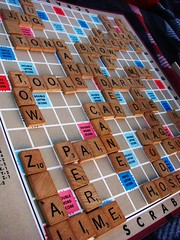Language Skills
The language that ten to twelve year olds use is almost as complex as the language adults use. Children this age are now playing with words and delight in the use of word-based problems. They are capable of modifying the complexity of their language to fit the audience they are speaking to and the situation they are in.
EXPRESSIVE LANGUAGE
(see full Glossary)
At this age, children can:
- speak in full and complex sentences;
- use the negative form (For example: I do not want this.”);
- use the correct form, when asking questions (For example: “Can I have this?”);
- use the passive form (For example: “The cat was chased by the dog.”);
- use figurative language (For example: “It is raining cats and dogs.”);
- use irregular plurals (For example, mice and feet);
- use the irregular past tense (For example: “He ate and then slept.”).
RECEPTIVE LANGUAGE
(see full Glossary)
At this age, children can:
- understand complex directions (for example, “Please take the book that is on the shelf and put under the table.);
- understand the main topic in a conversation, even if they missed a part of it;
- understand figurative language (for example “zip it”);
- understand the passive form (for example, “The book was carried by the teacher.”).
PRAGMATICS
(see full Glossary)
At this age, children can:
- carry on lengthy conversations (Fig. 1) with others;
- wait for their turn in a conversation;
- stay on topic;
- understand para-verbal (saying: hmmm) and non-verbal cues (nodding in agreement);
- ask for clarifications as needed.
Figure 1. Conversation
ARTICULATION
(see full Glossary)
At this age, children can:
- pronounce all sounds in their native language.
Did you know?
Children at this age are very proud of all the new words they are learning every day. Language-based games, such as Scrabble (Fig. 2), make great gift ideas.
Figure 2: Scrabble
Children at this age are capable of pronouncing all sounds in their native language. Any articulation difficulties that have persisted to this age should be brought to the attention of a speech and language pathologist.


0 comments
Kick things off by filling out the form below.
Leave a Comment